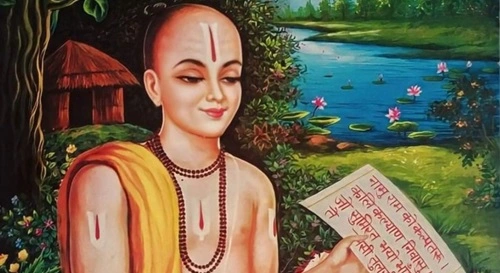Top 10 Famous Indian Saints of all Time Till 2025

Best 10 Famous Indian Saints of All Time (Till 2025)
India has been an otherworldly guide for centuries, giving rise to various holy people whose rationalities, lessons, and lives continue to direct humankind. These holy people, spread over diverse timelines and districts, lectured on adore, solidarity, and dedication while breaking obstructions of caste, ideology, and religion. Here are ten of the most compelling Indian holy people whose legacies have stood the test of time till 2025.

1. Ramanuja
Ramanuja was a driving figure in the Bhakti development and a persuasive defender of Vishishtadvaita Vedanta. Born in Tamil Nadu, he laid the establishment of Vaishnavism and emphasized salvation through commitment (Bhakti), information (Gyan), and activity (Karma). He wrote outstanding works like Sri Bhashya and Gita Bhashya, setting up a reverential way that rose above caste lines.
2. Chaitanya Mahaprabhu
Born in Navadvipa, Bengal, Chaitanya was a key advocate of Gaudiya Vaishnavism. Initially named Vishwambhar Mishra, he emphasized commitment to Master Krishna through delightful kirtans. He made a difference, spread Krishna awareness over Eastern India, and set up the philosophical roots of the Bhakti development in Bengal. His life and lessons are captured in the Chaitanya Charitamrita.
3. Shirdi Sai Baba
Revered by both Hindus and Muslims, Sai Baba of Shirdi lectured on solidarity among religions and emphasized self-realization, adoration, and sympathy. He established a connection to fabric belonging and supported pardoning, charity, and confidence. His adherents respect him as an incarnation of Master Dattatreya.
4. Tulsidas
A 16th-century poet-saint, Tulsidas, is best known for composing the Ramcharitmanas and Hanuman Chalisa. His compositions brought Ruler Rama's story to the common individuals in the neighborhood lingo of Awadhi. Tulsidas too started the Ramlila convention and established the Sankat Mochan Hanuman Sanctuary in Varanasi.
5. Surdas
Surdas, a dazzling writer of the Bhakti period, communicated his profound dedication to Master Krishna through profound compositions in Braj Bhasha. Partnered with the Vallabha Sampradaya, his sonnets frame a critical portion of reverential music in North India. His work remains an imperative component of Indian reverential literature.
6. Kabir
A spiritualist writer born close to Varanasi, Kabir challenged conventional honors and emphasized the unity of God, calling Him by names like Smash and Allah. He rejected caste-based divisions and devout customs, encouraging otherworldly arousing through self-realization and an individual master. His dohas are broadly studied and venerated throughout India.
7. Ramakrishna Paramahansa
Ramakrishna, a 19th-century holy person from Bengal, profoundly affected advanced Hinduism. A lover of Goddess Kali, he emphasized the solidarity of all religions and otherworldly encounters. His lessons, recorded by his devotee Swami Vivekananda, proceed to motivate otherworldly seekers worldwide.
8. Guru Nanak Dev Ji
The author of Sikhism, Guru Nanak, emphasized reflection on God’s title and lectured against superstition and social disparity. He laid the establishment for an otherworldly way grounded in commitment, lowliness, and uniformity. His songs are an indispensable portion of the Master Granth Sahib.
9. Guru Gobind Singh Ji
The tenth Sikh Guru, Guru Gobind Singh, was an otherworldly pioneer, warrior, and artist. He established the Khalsa Panth in 1699 and presented the Five Ks, basic images of Sikh character. His administration made a difference in setting Sikhism's character amid turbulent times.
10. Mahavira
The 24th Tirthankara of Jainism, Mahavira, was born in the 6th century BCE. He disavowed common life to achieve otherworldly edification through contemplation and asceticism. His lessons laid the foundation for Jain standards such as non-violence (Ahimsa), truth, and non-possessiveness.
These holy people have not, as it were, formed devout and philosophical thought in India, but have moreover motivated worldwide otherworldly developments. Their immortal lessons proceed to direct humankind toward cherish, kindness, and self-realization.



